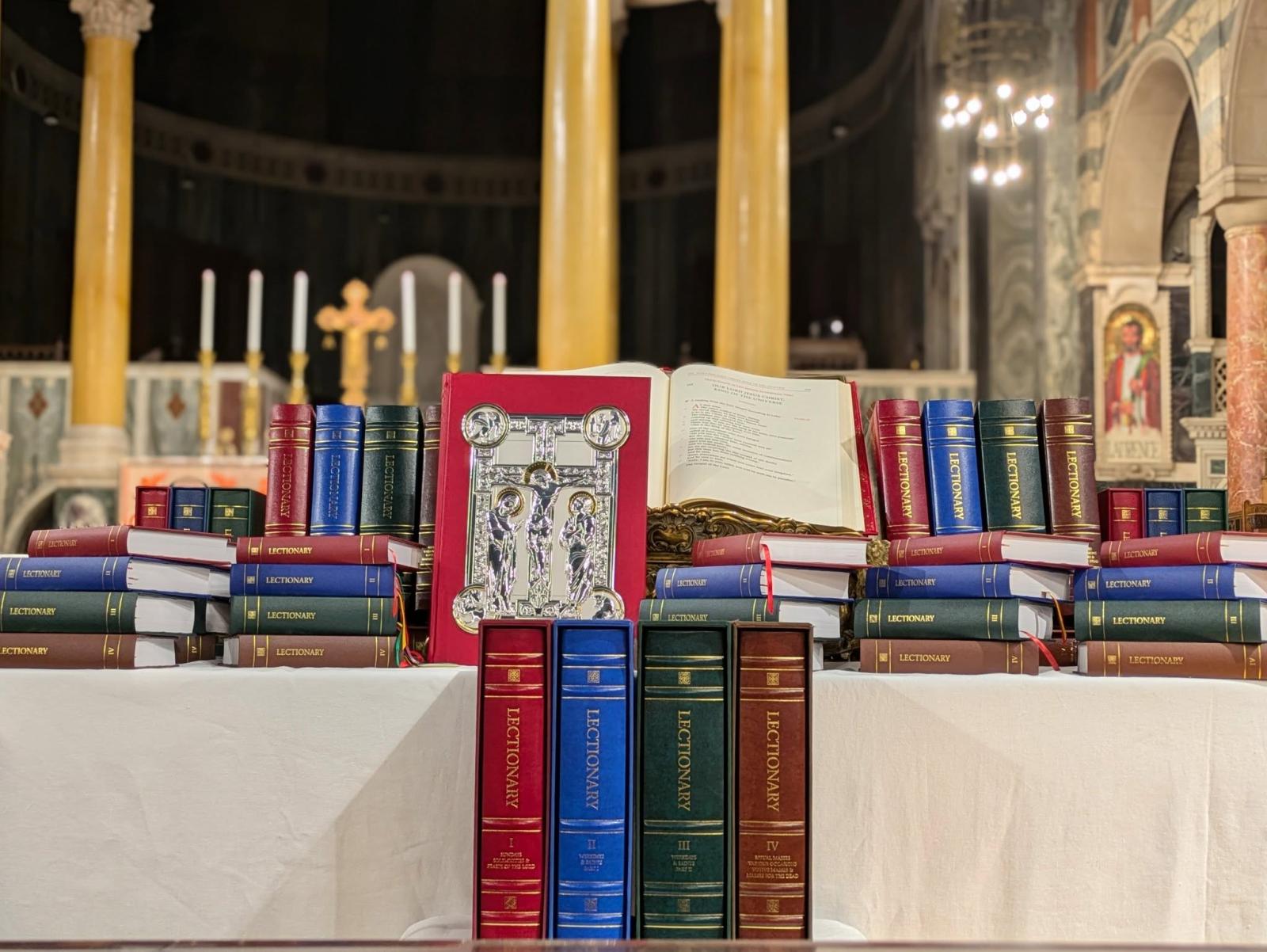By Paul Moynihan
The First Sunday of Advent sees the introduction of a new edition of the Lectionary in England and Wales, based on a different translation of the Bible. Since the reform of the system of readings used in the liturgy in the late 1960s, we have been accustomed to hearing Mass readings taken from the Jerusalem Bible (published in 1966) and have been singing psalms from the Grail translation. We have become very familiar with them; they now seem like ‘old friends’! But all that is going to change.
The new Lectionary is based on the English Standard Version – Catholic Edition of the Bible, while the psalms will come from a revised Grail translation, completed by Conception Abbey in Missouri. The content of the readings and psalms will remain unchanged, it is just the version of the Bible from which they are taken that will be different.
Why the change? The current Lectionary is out of print and needs reprinting. In recent years, many new liturgical celebrations have been added, along with significant revisions to the National Calendar of Saints for England and Wales. There has been much unease about the exclusive language used in some of the readings, and scripture scholarship has developed in the last 50 years.
So, our Bishops have taken the opportunity to think long and hard about the new edition of the Lectionary, with a number of key principles to be considered. It had to be a Catholic edition of the Bible. It had to respect modern Scripture scholarship, provide an accurate word-for-word translation, and comply with the Holy See’s regulations. The owners of the text also had to be amenable to editorial amendments being made to their text in order to make it suitable and usable as a Lectionary.
Much of what we will hear proclaimed will still be familiar to us:
The angel Gabriel was sent… In the beginning was the Word…
But we will notice:
Blessed are the poor in spirit… instead of Happy are the…
Rejoice in the Lord instead of Be happy in the Lord.
Brothers and sisters instead of just brothers.
One more example: Seeing the crowds, he went up the hill. There he sat down and was joined by his disciples. Then he began to speak. This is what he taught them… (Jerusalem Bible).
From now on, we will hear: Seeing the crowds, he went up on the mountain, and when he sat down, his disciples came to him. And he opened his mouth and taught them, saying… (ESV-CE).
As Archbishop George Stack recently said, ‘This is a theological mountain, not a hill. Moses ‘went up on the mountain’ where God spoke to him mouth to mouth (Exodus 19:3). So did Jesus. He was not ‘joined by his disciples’; they ‘came to him’. He ‘opened his mouth’ rather than ‘began to speak’. This more accurate translation will help us better appreciate the richness of the original Greek and Hebrew scripture texts.'
The Lectionary is one of the greatest fruits of the liturgical reforms introduced by the Second Vatican Council. Our new translation will reveal to us much more detail than we have been used to and help us to better understand the scriptures as a result.
